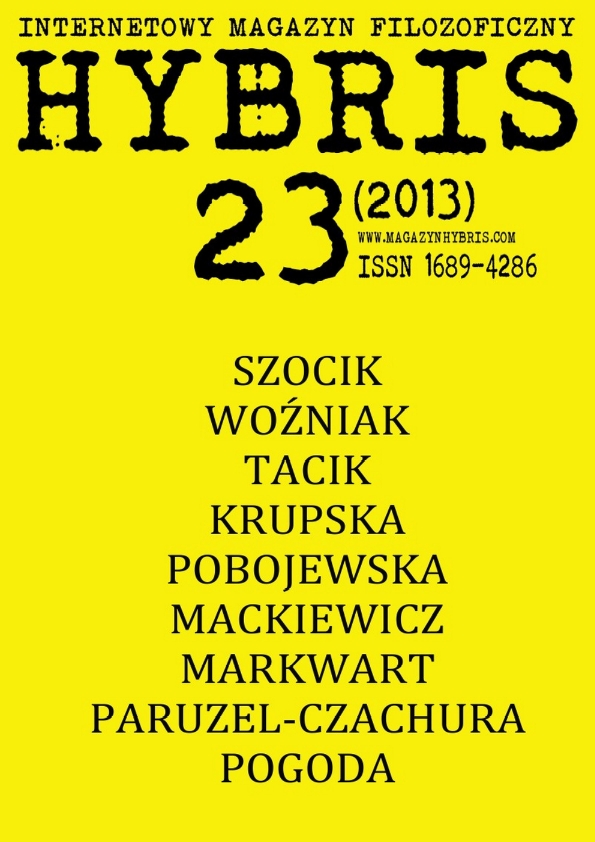PRACA JAKO NARZĘDZIE KARY I POPRAWY W MYŚLI MICHELA FOUCAULTA
WORK AS A TOOL OF PUNISHMENT AND CORRECTION IN THE THOUGHT OF MICHEL FOUCAULT
Author(s): Anna MarkwartSubject(s): History of Philosophy, Epistemology, Social Philosophy, Social history, Penology, 17th Century, 18th Century
Published by: Wydawnictwo Uniwersytetu Łódzkiego
Summary/Abstract: The article focuses on the problem of work in context of the thought of Michel Foucault. Initially an issue of the ambiguous character of work is addressed, mostly in context of Veblen’s and Dahrendorf’s theories. Work, from this perspective, may be, on the one hand, valuated highly, treated as a privilege and act as a tool of correction and selfdevelopment. On the other hand, lack of work can be either stigmatising (leading even to social exclusion) or being a sign of a high social status. In the latter case work is regarded as a toil and burden. Michel Foucault discussed work in context of the facilities of internment, both those that were to serve the disadvantaged people (poor, sick, mentally ill) and those that are the places of incarceration. In the great breakthrough of the 17th and 18th century many institutions and laws were, according to Foucault, designed with regard to utility. Therefore work became the tool for correction and normalisation as well as for punishment, a way to shorten the sentence, interned people were supposed to help the society, to repay for either their crimes or for the society’s help. Homo penalis was considered in terms of homo oeconomicus. The article discusses the issue of work in Foucault’s thought placing it in context of the incarceration, internment, utility and relations of power and knowledge.
Journal: Internetowy Magazyn Filozoficzny HYBRIS
- Issue Year: 2013
- Issue No: 23
- Page Range: 110-130
- Page Count: 21
- Language: Polish

